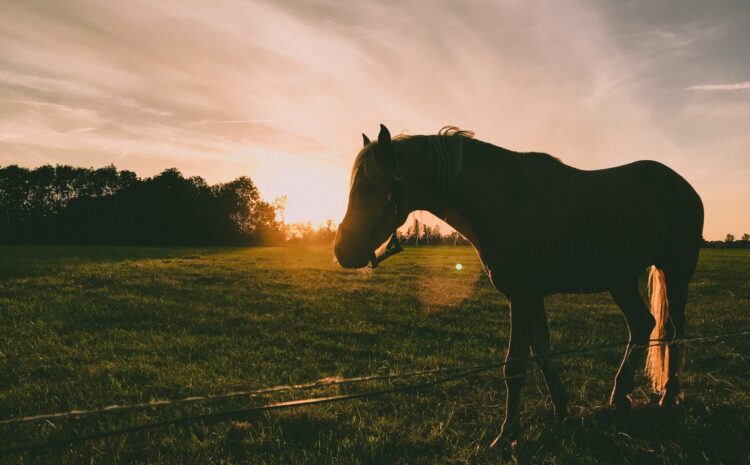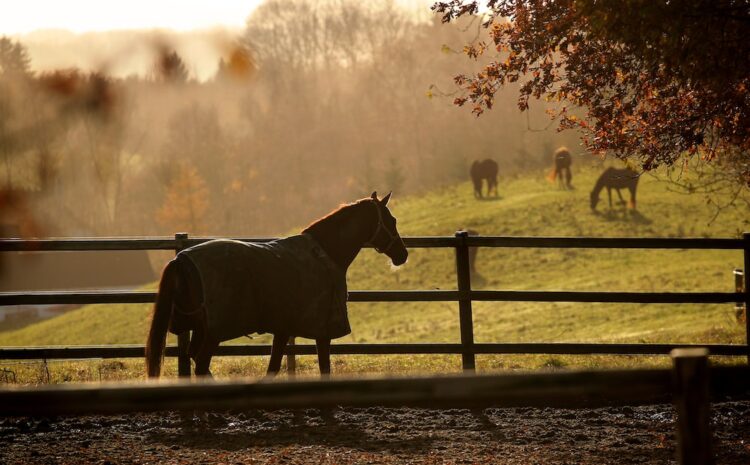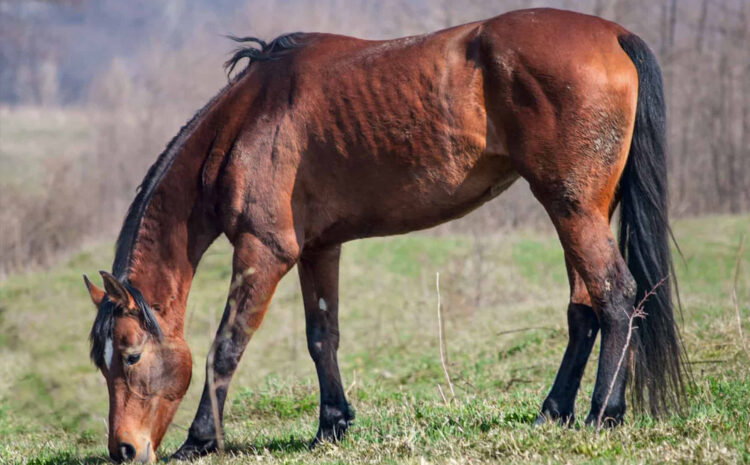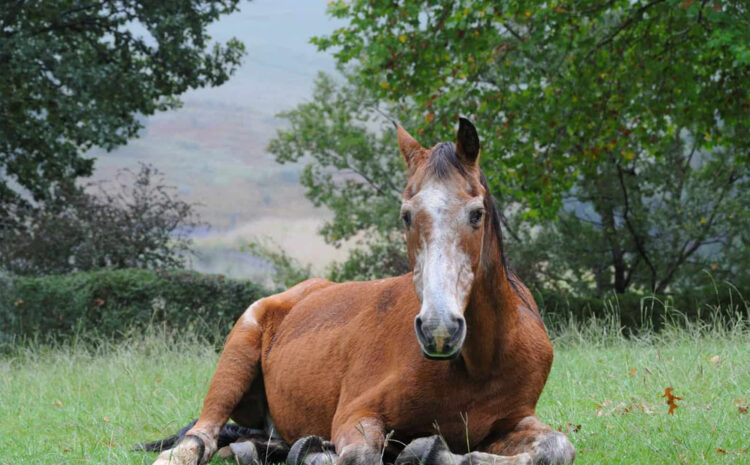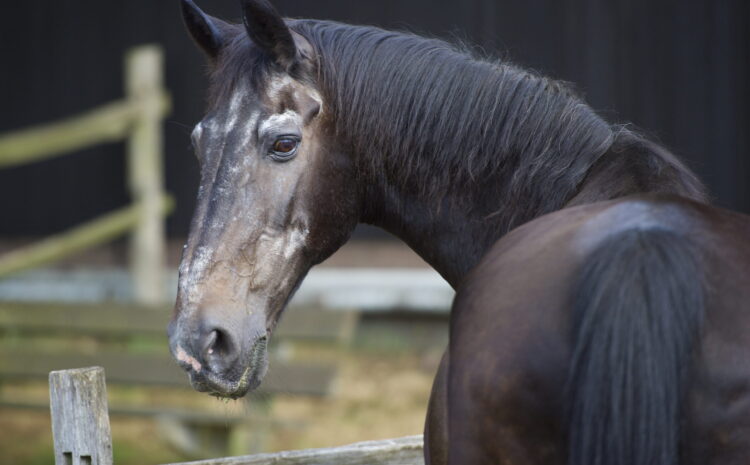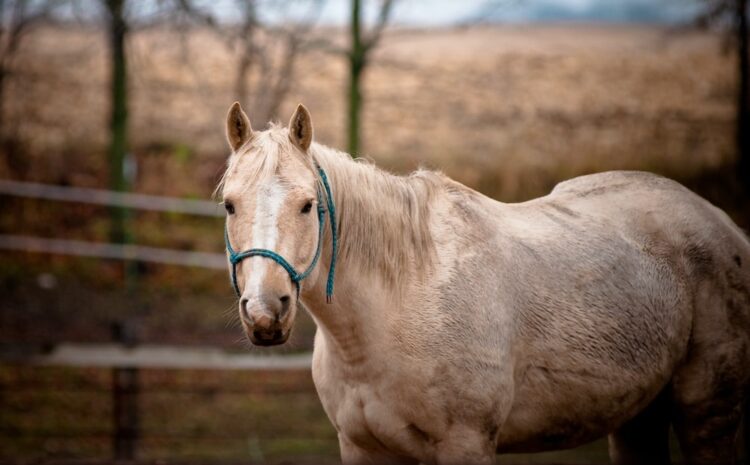Affiliated to Skill Council (Govt. of India)
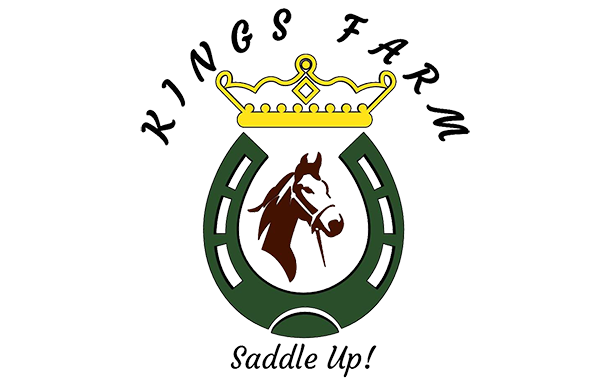

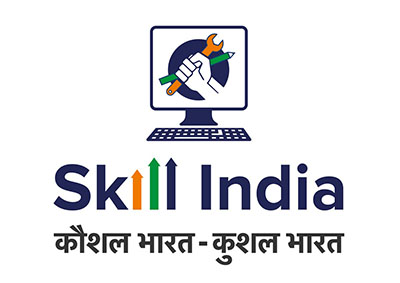

NationaL Skill Development Corporation (NSDC)
NSDC is a not-for-profit public limited company incorporated on July 31, 2008 under section 25 of the Companies Act, 1956 (corresponding to section 8 of the Companies Act, 2013). NSDC was set up by Ministry of Finance as Public Private Partnership (PPP) model. The Government of India through Ministry of Skill Development & Entrepreneurship (MSDE) holds 49% of the share capital of NSDC, while the private sector has the balance 51% of the share capital.
NSDC aims to promote skill development by catalyzing creation of large, quality and for-profit vocational institutions. Further, the organisation provides funding to build scalable and profitable vocational training initiatives. Its mandate is also to enable support system which focuses on quality assurance, information systems and train the trainer academies either directly or through partnerships. NSDC acts as a catalyst in skill development by providing funding to enterprises, companies and organizations that provide skill training. It also develops appropriate models to enhance, support and coordinate private sector initiatives. The differentiated focus on 37 sectors under NSDC’s purview and its understanding of their viability will make every sector attractive to private investment.
Vision & Mission
Vision
NSDC was set up as part of a national skill development mission to fulfil the growing need in India for skilled manpower across sectors and narrow the existing gap between the demand and supply of skills. “There is a compelling need to launch a world-class skill development programme in a mission mode that will address the challenge of imparting the skills required by a growing economy. Both the structure and the leadership of the mission must be such that the programme can be scaled up quickly to cover the whole country.”
Mission
- Upgrade skills to international standards through significant industry involvement and develop necessary frameworks for standards, curriculum and quality assurance.
- Enhance, support and coordinate private sector initiatives for skill development through appropriate Public-Private Partnership ( PPP ) models; strive for significant operational and financial involvement from private sector.
- Play the role of a ‘market-maker’ by bringing funds, particularly in sectors where market mechanisms are ineffective or missing.
- Prioritise initiatives that can have a multiplier or catalytic effect as opposed to one-off impact.
Objective
To contribute significantly to the overall target of skilling up of people in India, mainly by fostering private sector initiatives in skill development programmes and to provide funding.
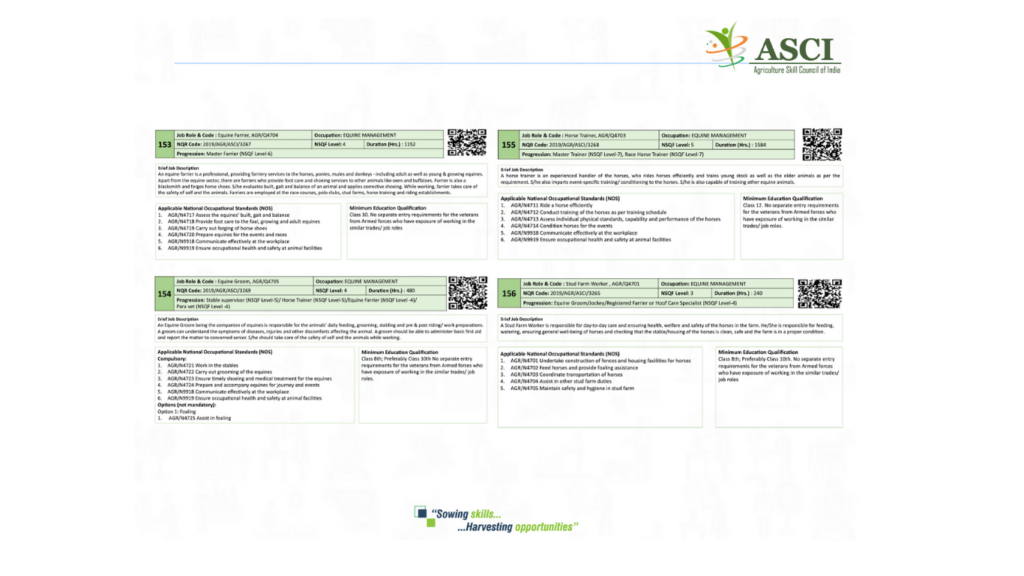
Skill Council
This refers to a non-profit organization in India that sets standards and guidelines for specific industries and job roles. They work to create a skilled workforce by developing training programs, assessing skills, and certifying individuals. Some examples of Skill Councils in India include:
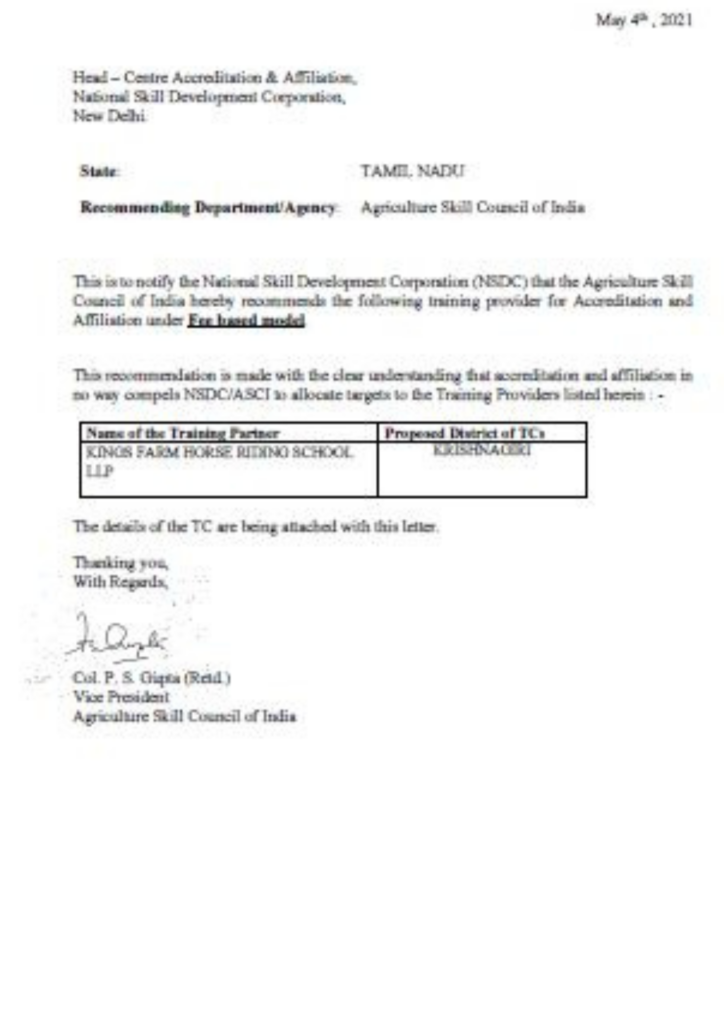
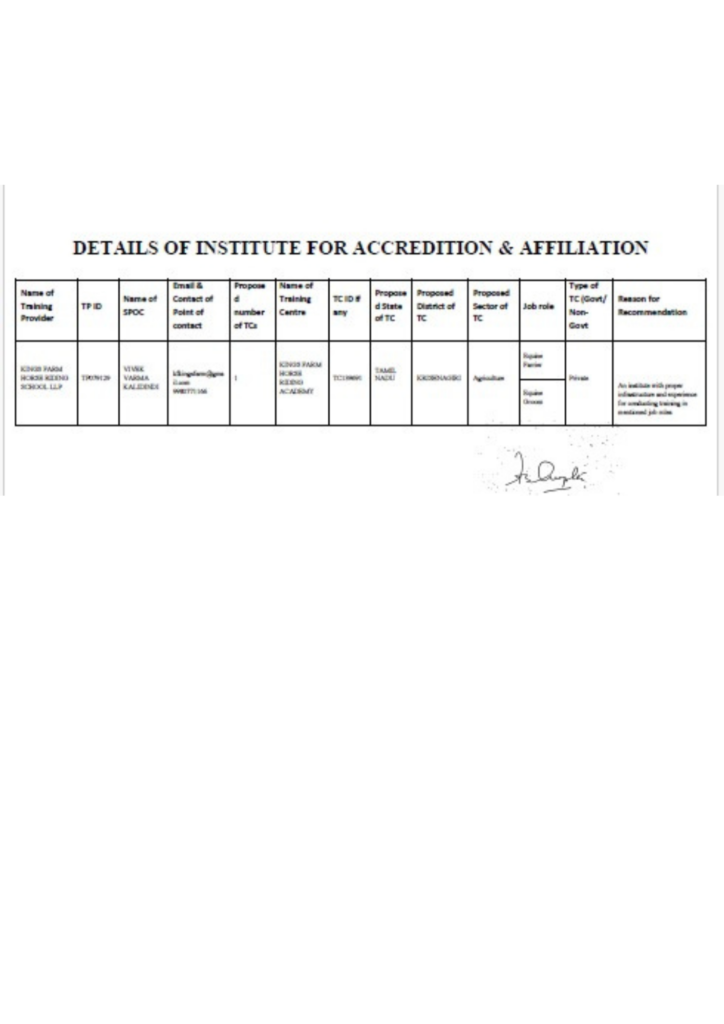




Skill Council
This refers to a non-profit organization in India that sets standards and guidelines for specific industries and job roles. They work to create a skilled workforce by developing training programs, assessing skills, and certifying individuals. Some examples of Skill Councils in India include:
Equine Management Courses
Equine Groom
Course Details
Who is a Equine Groom ?
An Equine Groom being the companion of equines is responsible for the animals’ daily feeding, grooming, stabling and pre & post riding/ work preparations. A groom can understand the symptoms of diseases, injuries and other discomforts affecting the animal. A groom should be able to administer basic first aid and report the matter to concerned senior. S/he should take care of the safety of self and the animals while working.
What will be covered?
By the end of the training, you’ll be able to: :
- Work effectively in the stables.
- Carry out grooming of the equines.
- Ensure timely shoeing and medical treatment for the equines.
- Prepare and accompany equines for journey and events.
- Communicate effectively at the workplace.
- Ensure occupational health and safety at animal facilities.
Equine Farrier
Course Details
Who is a Equine Farrier ?
An equine farrier is a professional, providing farriery services to the horses, ponies, mules and donkeys – including adult as well as young & growing equines. Apart from the equine sector, there are farriers who provide foot care and shoeing services to other animals like oxen and buffaloes. Farrier is also a blacksmith and forges horse shoes. S/he evaluates built, gait and balance of an animal and applies corrective shoeing. While working, farrier takes care of the safety of self and the animals. Farriers are employed at the race courses, polo clubs, stud farms, horse training and riding establishments.
What will be covered?
By the end of the training, you’ll be able to: :
- Assess the equines’ built, gait and balance.
- Provide foot care to the foal, growing and adult equines.
- Carry out forging of horse shoes.
- Prepare equines for the events and races.
- Communicate effectively at the workplace.
- Ensure occupational health and safety at animal facilities.
Assistant Equine Breeder
Course Details
Who is an Assistant Equine Breeder?
Assistant Equine Breeder helps the equine breeder in carrying out equine breeding operations. S/he should possess basic knowledge of equine genetics and be well versed with equine breeds, breeding norms and suitability of equines for various purposes and employment. Assistant equine breeder oversees covering of animals, monitoring of pregnancy, attending to foaling, and documenting history. S/he also assists in planning nutrition, inoculation and deworming for each category of animals. An assistant equine breeder should also possess managerial skills in executing breeding, rearing of breeding stock and associated functions at the stud farm.
What will be covered?
By the end of the training, you’ll be able to: :
- Assist in equine breeding and associated functions.
- Manage pregnant and foal-at-foot equines and the foals.
- Carry out periodic deworming and inoculation of animals.
- Ensure proper nutrition to different breeding stock.
- Carry out documentation of the breeding stock under charge.
- Ensure occupational health and safety at animal facilities.
Horse Trainer
Course Details
Who is a Horse Trainer?
A horse trainer is an experienced handler of the horses, who rides horses efficiently and trains young stock as well as the older animals as per the requirement. S/he also imparts event-specific training/ conditioning to the horses. S/he is also capable of training other equine animals.
What will be covered?
By the end of the training, you’ll be able to: :
- Ride a horse efficiently.
- Conduct training of the horses as per training schedule.
- Assess individual physical standards, capability and performance of the horses.
- Condition horses for the events.
- Communicate effectively at the workplace.
- Ensure occupational health and safety at animal facilities.
Stud Farm Worker
Course Details
Who is a Stud Farm Worker?
A Stud Farm Worker is responsible for the day-to-day care and ensuring health, welfare and safety of the horses on the farm. He/She is responsible for feeding, watering, ensuring the general well-being of horses and checking that the stable/housing of the horses is clean, safe and the farm is in proper condition.
What will be covered?
By the end of the training, you’ll be able to:
- Undertake construction of fences and housing facilities for horses.
- Feed horses and provide foaling assistance.
- Coordinate transportation of horses.
- Assist in other stud farm duties.
- Maintain safety and hygiene in the stud farm.

